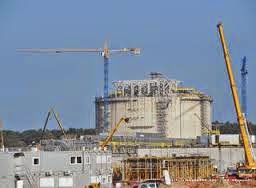Gun laws in Poland
The right to private gun ownership is not guaranteed by Polish law. In Poland, only licensed gun owners may lawfully acquire, possess or transfer a firearm or ammunition. In the U.S. licensing is primarily used in cases when citizens want a permit to conceal carry a firearm, which demands formal certified training before applying for a CCW permit.
 |
| Polish Pistol Radom P-35 World War II Vintage |
Applicants for a gun owner’s licence in Poland are required to prove genuine reason to possess a firearm, for example, hunting, target shooting, personal protection, security. The minimum age for gun ownership in Poland is 18 years
An applicant for a firearm licence in Poland must pass a background check which considers criminal, mental and domestic violence records. Where a past history, or apprehended likelihood of family violence exists, the law in Poland stipulates that a gun licence should be denied or revoked
In Poland, an understanding of firearm safety and the law, tested in a theoretical and/or practical training course is require for a firearm licence. Authorities maintain a record of individual civilians licensed to acquire, possess, sell or transfer a firearm or ammunition
Licensed firearm owners in Poland are permitted to possess only ammunition suitable for the intended firearm.














